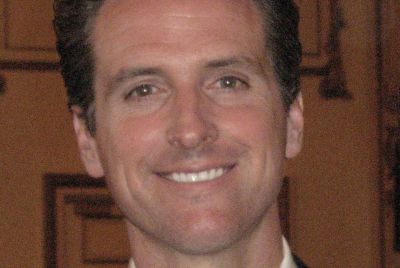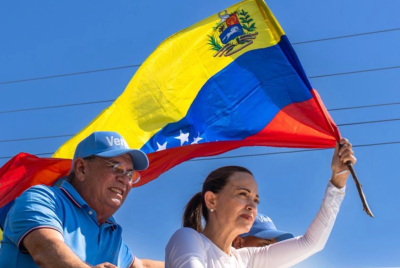Syria crisis: We need to counter poisonous Islamist narrative that fuels Isis and al-Qaeda

In the aftermath of the Paris attacks, Islamic State (Isis) is receiving increased attention, media coverage and military action. Paris demanded a response and governments must unite to combat those causing havoc, evil and fear.
IS, however, is not the be all and end all of terror. If we focus our efforts solely on reacting to current threats, we relegate ourselves to merely firefighting, rather than investing time and resources into stopping the cause of the blaze. It is fundamental that we understand where kindling is being gathered and where sparks are flying in order to prevent future fires.
Al-Qaeda is not only still functioning on the ground in Syria, but it is in fact gaining support as it concretely roots itself in societies that support the opposition to the Assad regime. While, at times, IS is enforcing its presence and rule on the inhabitants of controlled regions, al-Qaeda's local affiliate, Jabhat al-Nusra (JN), is building relationships with both communities and broader armed opposition in Syria. It has officially coordinated with local Syrian Islamists; unofficially with moderate nationalists; and also directly with smaller, transnationally minded jihadi groups.
IS will come and go. There will ultimately be a new threat one day, and in order to prevent that, we have to work at the root cause – the Islamist narrative and the poisonous ideology that underpins it.
Similarly, al-Qaeda in the Arabian Peninsula (AQAP) has sought a diametrically opposed approach to that of Islamic State by sustainably implanting within communities while temporarily giving a lower profile to ideological extremism. Building such local connections aids these organisations' longevity, making them exceptionally serious threats that the Western world should be investigating with urgency.
The various groups currently operating in Syria are shown on the Institute for United Conflict Analysts' map in Pieter Van Ostaeyen's blog. Not only are these groups gaining ground in Syria, but, as seen in the Charlie Hebdo attacks, AQAP also attacked in France in January 2015.
If the international community simply responds to the current threat that momentarily hits the headlines, other groups and terrorist organisations will be able to upscale unnoticed, planning future attacks behind the smokescreen of our fascination with the here and now. IS receives intense media coverage and this tunnel vision simply frees terror on the periphery into space to develop.
The longer JN is able to play its elusive game, the more resilient al-Qaeda's stronghold in Syria will be. Yet at the same time, groups like JN become considered viable partners in order to ensure stability within the region, regardless of their violent and extremist ideology and practices.
Throughout history governments have displayed an ability to emotionally overreact to international crises marauding under the guise of an impassioned upholding of Western values. Yet cool, calm and measured thinking is lauded as a military value. In the face of global threats, the longer-term plan must include monitoring groups that are growing out of the spotlight, and preventing vulnerable people from joining these groups in the first place.
Yes, current affairs urgently need wise and well-thought through responses in order to prevent attacks and save lives. However, we must strike the correct balance between highlighting the horrific attacks and propaganda disseminated by jihadist groups, as well as encouraging long term political and public responses against such groups, thwarting future attacks around the world.
IS, as it is, will come and go. Although this is undeniably hard to imagine in the current state of affairs, other threats will rise as aspects of IS weaken. There will ultimately be a new threat one day, and in order to prevent that, we have to work at the root cause – the Islamist narrative and the poisonous ideology that underpins it.
JN, AQAP and IS all share this venomous narrative and ideology. Although one is in the headlines more than the others, it does not make the less visible groups safer allies. In order to counter the ideology shared by such groups, it is important to promote counter narratives exposing their propaganda, and also to present alternatives to those on the receiving end of it. Offering alternative narratives to those who are disenfranchised with democratic politics is crucial in convincing would-be subscribers of the Islamist ideology.

Countering radicalisation and extremism is achieved in a number of ways. First and foremost we must defend the right to freedom from discrimination and the right to practise one's own religion or wear religious attire, which is all too often viewed as an attack on the religious freedom of Muslim communities – a grievance frequently exploited by jihadist groups to forward an "Islam vs the West" narrative.
We must therefore engage in both inter and intra-cultural exchange and dialogue among all communities, irrespective of faith or ethnic differences. This will not only make our nation more open and accepting of varied backgrounds, but will also mean that Muslims can play a constructive role in challenging the extremism in their communities.
When faced with extremism we should challenge it just as we would challenge bullying or racism. After all, preventing extremism is not a job solely for the government or security forces to uphold, but rather a role for everyone to engage in. However, in order to counter the poisonous ideology of JN, AQAP and IS, for example, it is vital to clarify the difference between Islam with the political ideology of Islamist extremism – that way, when we challenge extremists, we will not cause prejudice or impair anyone's right to practise their faith.
Furthermore, it is crucial to ground identity in that which is positively constructive. Being collectively and individually proud of our human rights and freedoms will mean that people are less convinced to join an organisation that indeed tramples on and despises the liberties that we hold in our society. Performing these actions at a grass root level, and as early as possible, is key because stopping someone from becoming radicalised is much easier than deradicalising someone who has already become an extremist.
It is essential that while putting out the fires of IS, and while we monitor the kindling in the shadows that is planning future terror, we must simultaneously dampen the ground on which people are believing half-truths, leading to radicalisation and thus increasing support for the extremist ideologies.
Rachel Bryson is a researcher at Quilliam Foundation.
© Copyright IBTimes 2025. All rights reserved.





















